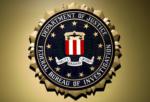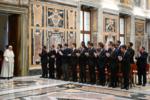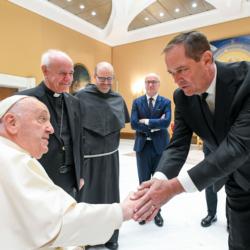'Chernobyl,' May 6, HBO
NEW YORK (CNS) -- On April 26, 1986, a core meltdown took place at the Chernobyl nuclear power plant near Pripyat, Ukraine (then part of the Soviet Union). The result was one of the 20th century's worst manmade catastrophes.
HBO's miniseries "Chernobyl" recalls the heroic sacrifices ordinary Ukrainians made to contain the accident's wide-ranging fallout as well as the courageous struggle of some Soviet citizens to expose the truth about what took place.
Starkly evocative and cautionary, the show premieres Monday, May 6, 9-10 p.m. EDT. It will air in that time slot throughout its five-week run, concluding June 3.
Created, written and executive produced by Craig Mazin, the dramatization opens on the second anniversary of the tragedy as retired nuclear physicist Valery Legasov (Jared Harris) tape-records his account of the incident.
The action then shifts back to the immediate wake of the disaster. In the spirit of "glasnost" -- transparency -- that marked his administration's effort to reform Soviet society, Communist Party General Secretary Mikhail Gorbachev (David Dencik) assigns Deputy Prime Minister Boris Shcherbina (Stellan Skarsgard) to head a commission that will tell the Chernobyl story accurately.
Shcherbina, in turn, enlists Legasov's help. A true believer in the Soviet system, Shcherbina initially downplays the damage. "You may need to get a chest X-ray," the apparatchik dismissively says of radiation's harmful consequences. But the physicist admonishes the bureaucrat: "It's more like 400 X-rays."
"That's not alarmist, " he says. "It's a fact."
Legasov's dire warnings convince Gorbachev to send the duo to the site so they can devise a plan to contain the contamination. Legasov gradually gains the deputy prime minister's trust, and they conceive an ambitious scheme to get the fire under control.
Hearing about this plan while listening to her radio 400 miles away in Minsk, another nuclear physicist, Ulana Khomyuk (Emily Watson), recognizes a grave flaw in it, and she travels to Pripyat to prevent the men from making a huge mistake.
Shcherbina and Legasov acknowledge the validity of Khomyuk's concerns and adjust their designs accordingly. But their revised proposal will require nuclear plant workers, coal miners and soldiers to do dirty and dangerous work -- labor that will likely cost them their lives but will prevent the deaths of thousands of others.
As this thankless toil proceeds, Legasov tasks his fellow physicist with interviewing the power plant managers responsible for conducting the safety test that triggered the meltdown to determine what precisely went wrong and where culpability lay.
The script includes some strong vulgarity, which occasionally feels excessive. A suicide is discreetly portrayed. Graphic but not lurid images of people ravaged by radioactive poisoning, by contrast, are difficult to watch. And numerous acts of what would be considered animal cruelty in another context will likely distress many viewers.
Though briefly displayed, the full-frontal nudity of coal miners who find themselves unable to cope with the suffocating conditions underground seems needlessly explicit. Taken together, these elements suggest that the program, while suitable for adults, may not be to every grown-up's taste.
The production is distinguished by universally strong performances. Skarsgard effortlessly charts loyalist Shcherbina's unlikely transformation into a critic of the party who can wryly remark, "The official position of the state is: global nuclear catastrophe is not possible in the Soviet Union."
As for the great Watson, her Khomyuk's resolute pursuit of the truth credibly convinces Legasov to speak out more forcefully against the state's fundamental deception. In the intonations and timbre of Harris' voice viewers will hear echoes of his storied father, Richard. But in his characterization of the beleaguered and forlorn Legasov, the son stands out in his own right.
More than a fact-based drama, "Chernobyl" is also something of a moral parable. In Legasov's experience, viewers will find lessons relevant for our own times. "Every lie we tell," he says at one point, "incurs a debt to the truth."
- - -
Byrd is a guest reviewer for Catholic News Service.


















